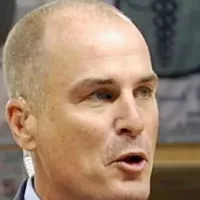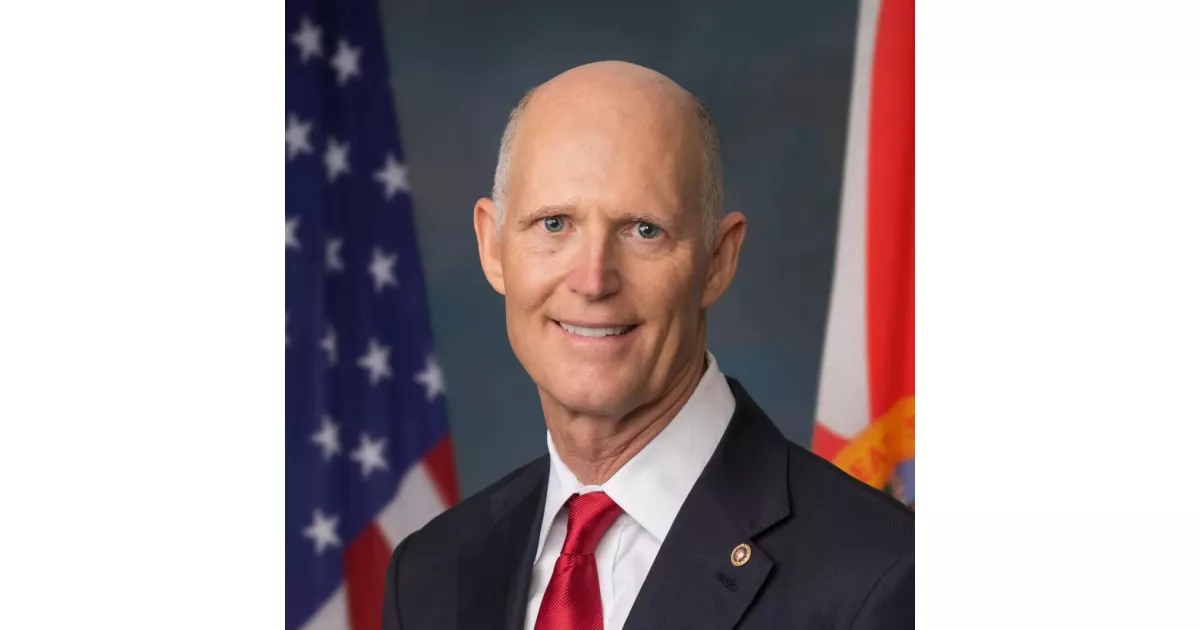A closer look at the defining struggles that shaped Rick Scott's life and career.
Richard Lynn "Rick" Scott is an American politician currently serving as the senior United States Senator from Florida since 2019. He is a member of the Republican Party. Prior to his senatorial role, Scott served as the 45th Governor of Florida for two terms, from 2011 to 2019. Beyond his political career, Scott has experience as an attorney and businessman. He is also a Navy veteran.
April 1987: Attempt to Buy Hospital Corporation of America (HCA)
In April 1987, Rick Scott attempted to buy the Hospital Corporation of America (HCA) for $3.85 billion but the offer was declined.
March 19, 1997: FBI Raids Columbia/HCA Facilities
On March 19, 1997, the Federal Bureau of Investigation, Internal Revenue Service, and Department of Health and Human Services executed search warrants at Columbia/HCA facilities and doctors suspected of ties to the company.
1997: Resigned as CEO of Columbia/HCA
In 1997, Rick Scott was pressured to resign as chief executive of Columbia/HCA due to the company defrauding Medicare, Medicaid, and other federal programs.
September 2000: WebMD Planned to Relaunch The Health Network
In September 2000, WebMD planned to relaunch The Health Network as WebMD Television, but announced cutbacks and restructuring.
2000: Scott Pleaded the Fifth Amendment
During Rick Scott's 2000 deposition, he pleaded the Fifth Amendment 75 times.
2002: Columbia/HCA pleaded guilty to 14 felonies
In 2002, Columbia/HCA pleaded guilty to 14 felonies and agreed to a $600+ million fine for healthcare fraud.
2002: HCA Agreed to Pay the US Government $631 Million
In late 2002, HCA agreed to pay the United States government $631 million, plus interest, and $17.5 million to state Medicaid agencies.
2011: Restrictive Clemency Rules
In 2011, the Brennan Center for Justice described the clemency rules issued by Scott as among the most restrictive in the country.
December 2014: Drug Screening Law Declared Unconstitutional
In December 2014, the United States Court of Appeals for the Eleventh Circuit upheld the ruling that Florida's law mandating drug screenings for welfare applicants was unconstitutional. The Scott administration chose not to appeal the decision to the US Supreme Court.
January 2016: US Supreme Court Strikes Down Part of Timely Justice Act
In January 2016, the Supreme Court of the United States invalidated a section of Florida's Timely Justice Act in Hurst v. Florida, deeming a judge's determination of aggravating factors for a death sentence based on a non-binding jury recommendation unconstitutional.
October 2016: Florida Supreme Court Strikes Down New Sentencing Scheme
In October 2016, the Florida Supreme Court struck down a new statute intended to comply with Hurst v. Florida, ruling that a death sentence must be issued by a unanimous jury. This ruling created uncertainty regarding existing sentences and the process for seeking the death penalty.
March 2017: Former felons file class action lawsuit
In March 2017, seven former felons filed a class action lawsuit, arguing that the clemency board's decisions were inconsistent, vague, and political.
2017: Accusations of fueling HIV epidemic
In 2017, Rick Scott was accused of fueling an HIV epidemic while governor, by ensuring that Florida returned $54 million in unspent federal HIV-prevention grants and blocking $16 million in CDC grants to Miami-Dade and Broward counties. The state accounted for 13% of the country's HIV diagnoses.
2017: Lawsuit over disclosure of wealth
In 2017, a lawsuit was filed by a Democratic activist claiming Rick Scott had not disclosed sufficient information about his wealth and holdings. The appeals court agreed that only the Commission on Ethics had constitutional authority to investigate the complaint.
2017: Provisions of Firearm Owners' Privacy Act Struck Down
In 2017, provisions of the Firearm Owners' Privacy Act, including the part forbidding doctors from asking about a patient's gun ownership, were struck down as unconstitutional by the United States Court of Appeals for the Eleventh Circuit.
February 2018: Court Rules Scott's Felon Voting Rights Process Unconstitutional
In February 2018, a U.S. District Court ruled that Rick Scott's process for restoring felons' voting rights was arbitrary and unconstitutional. The court mandated that Scott create a new process, stating that Scott and his clemency board had "unfettered discretion" to deny voting rights "for any reason."
2018: Water Contamination Crisis
In 2018, Florida faced a water contamination crisis which stirred controversy due to the $700 million cuts made by Rick Scott from Florida's water management districts during his time as governor.
2018: Voting Rights Investigation and Approval Discrepancies
In 2018, an investigation by the Palm Beach Post found that during Rick Scott's governorship, he restored voting rights to three times as many white men as black men, despite blacks comprising a significant portion of those released from state prisons. Only 27% of those granted restored voting rights were black, while 43% of those released from state prisons in the past 20 years were black. This was the lowest percentage of blacks among those whose voting rights were restored in over 50 years.
April 2019: Scott Urges Military Action in Venezuela
In April 2019, amid calls for American military intervention in Venezuela, Rick Scott asserted that the Maduro regime was perpetrating a "genocide" and that the U.S. was "not aggressive enough" regarding the situation. He called on the U.S. to position its military assets in preparation for responding to events in Venezuela.
August 2022: STOCK Act Violation Allegation
In August 2022, Business Insider reported that Rick Scott allegedly violated the Stop Trading on Congressional Knowledge (STOCK) Act of 2012. This occurred after Scott and his wife sold stock in Emida Corporation worth up to $450,000 in September 2021, but Scott did not report it until August 2022, exceeding the 45-day reporting requirement.
August 2022: Open Letter Discouraging IRS Job Applications
In August 2022, Rick Scott published an open letter encouraging job seekers not to apply for newly funded positions at the IRS. He vowed that Republicans would "defund" those jobs if they took control of Congress in January 2023.
2023: Scott Swatted as Part of Politician Targeting
In 2023, Rick Scott was swatted as part of a larger swatting incident targeting American politicians.
Mentioned in this timeline

Donald John Trump is an American politician media personality and...
Ukraine is a country in Eastern Europe the second-largest on...

Ruth Bader Ginsburg was an American lawyer and Supreme Court...
The Affordable Care Act ACA also known as Obamacare is...

Addison Mitchell McConnell III is an American politician and attorney...
California is a U S state on the Pacific Coast...
Trending

24 minutes ago Sloane Stephens and Jozy Altidore Announce Divorce After Four Years of Marriage

25 minutes ago Jay Bilas Praises UNC; Dixon Struggles; Davis's Job May Be Safe

25 minutes ago Timothée Chalamet and Matthew McConaughey Reunite, Discuss 'Interstellar' and Share Memories.

1 hour ago Cameron Boozer: Duke Forward, Elite Numbers, and Wooden Award Favorite

1 hour ago Josiah Harrell's Sensational UFC Debut After Rare Brain Disease Diagnosis: A Houston Story

1 hour ago Rajah Caruth shines at JR Motorsports; Mayer takes pole; Mears avoids crash.
Popular

Jesse Jackson is an American civil rights activist politician and...

Barack Obama the th U S President - was the...

Ken Paxton is an American politician and lawyer serving as...

Bernie Sanders is a prominent American politician currently serving as...

Michael Joseph Jackson the King of Pop was a highly...
Randall Adam Fine is an American politician a Republican who...
